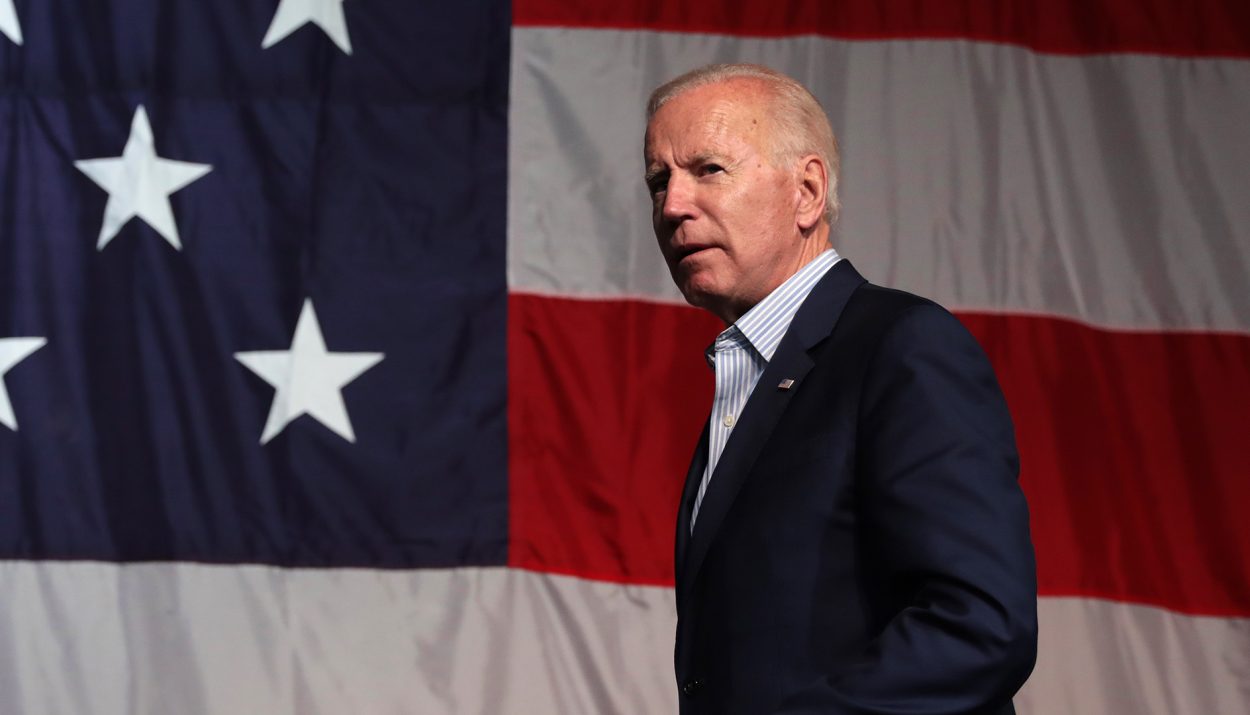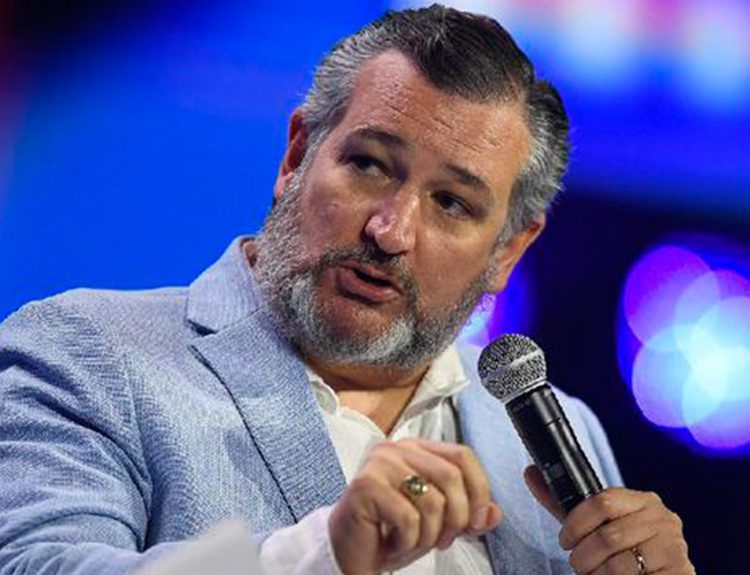All the economic markers show that the United States economy is growing. Stock markets are at record highs and inflation is finally slowing down. The investment in infrastructure is paying off. With all these positives, you’d think that President Joe Biden would be experiencing significant popularity. But that’s not the case and you might be wondering why.
It’s The Economy, Stupid
Traditionally, the economy has been a top concern for voters in the United States. In 1992, Bill Clinton’s political strategist James Carville kept a sign in campaign headquarters that said, “It’s the economy, stupid.” It was a reminder to stay focused and talk to Americans about their most important concerns: their wallets and money.
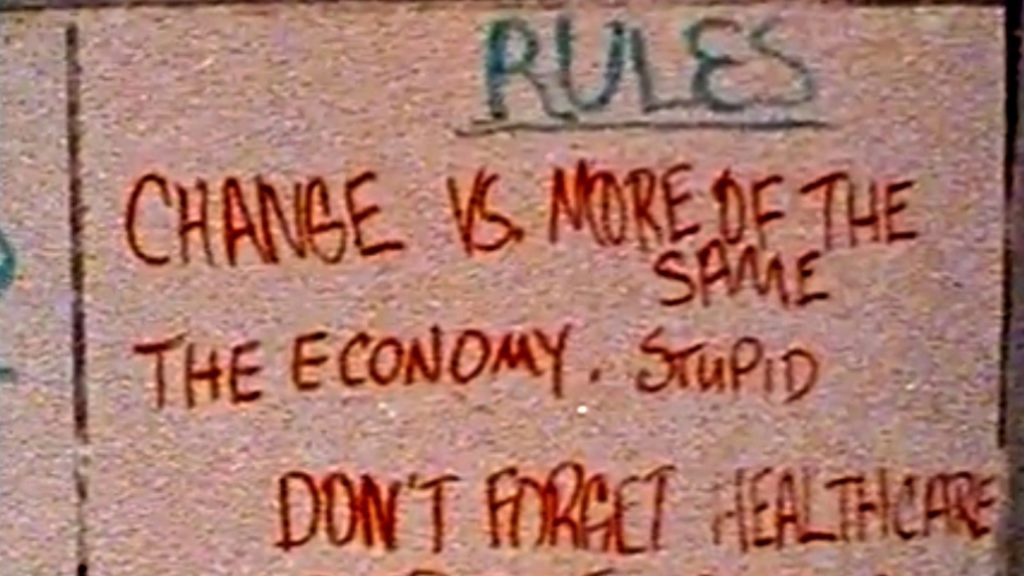
It’s understandable that economics plays a role in presidential elections. While the president can’t control everything, the person in the Oval Office often takes the credit or blame for what happens in the economy. Candidates make promises to improve the economy and voters make their choices based on those promises.
Biden In The Polls
When looking at the numbers, it might seem like the United States is thriving. Inflation is down, the stock market is up, and unemployment is at record lows. If everything’s going well, then Biden should be up in the polls and optimistic about his reelection chances. So, what are the polls saying?
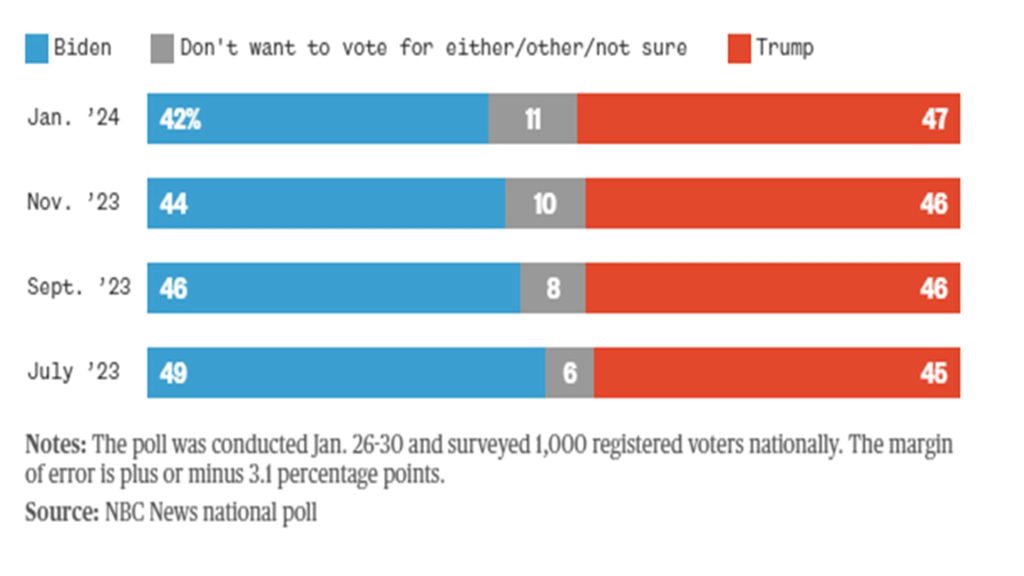
Biden’s most recent poll numbers aren’t great, and they’re particularly dismal when voters were asked about the economy. He’s polling at just 33% approval on the economy. That’s a horrible number by any measure, and presumptive Republican nominee Donald Trump is polling far ahead of Biden in the early stages of the election. In fact, he has a 22 percent lead.
Biden Vs Trump: The Similarities
Trump likes to tout his economic successes, but the truth is that Biden and Trump have more in common than either man would like to admit. Both are what economists have referred to as “deficit deniers,” meaning that they have not ever focused on balancing the US budget or reducing deficit spending.
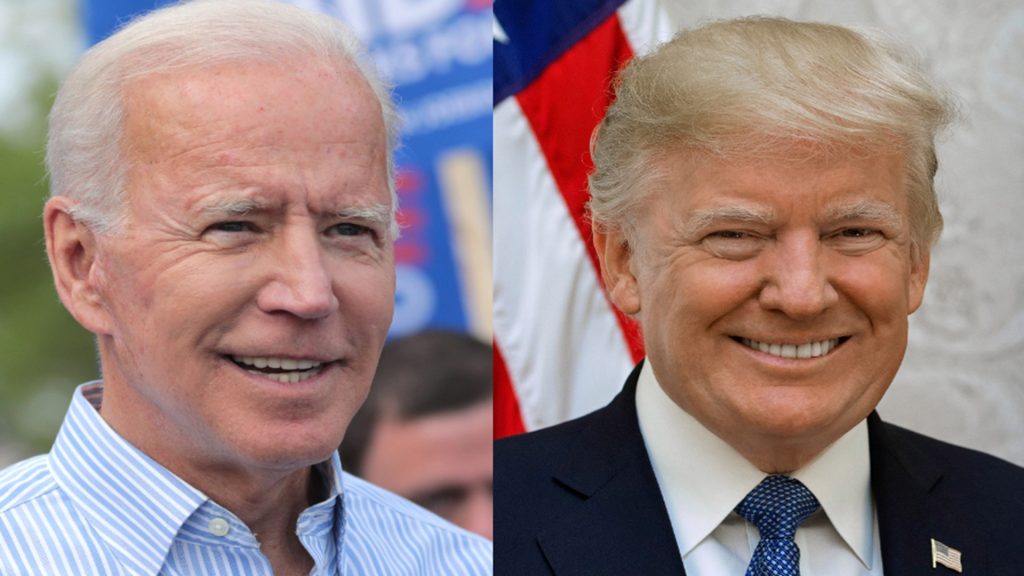
The primary differences, beyond those related to social policies, are in what each man would do with the money in the budget. Biden wants to spend it on things like infrastructure and social programs, while Trump prefers to give tax breaks to the wealthiest Americans. His Tax Cuts and Jobs Act, passed in 2017, offered minimal relief to most Americans.
Why Are Biden’s Numbers So Low?
It’s useful to think about why President Biden’s poll numbers are so low. While it might look like the US economy is in good shape, the truth is that most Americans aren’t feeling much relief from the economic hardships of the past few years. In fact, many are feeling the economic pinch more than they were in 2020.
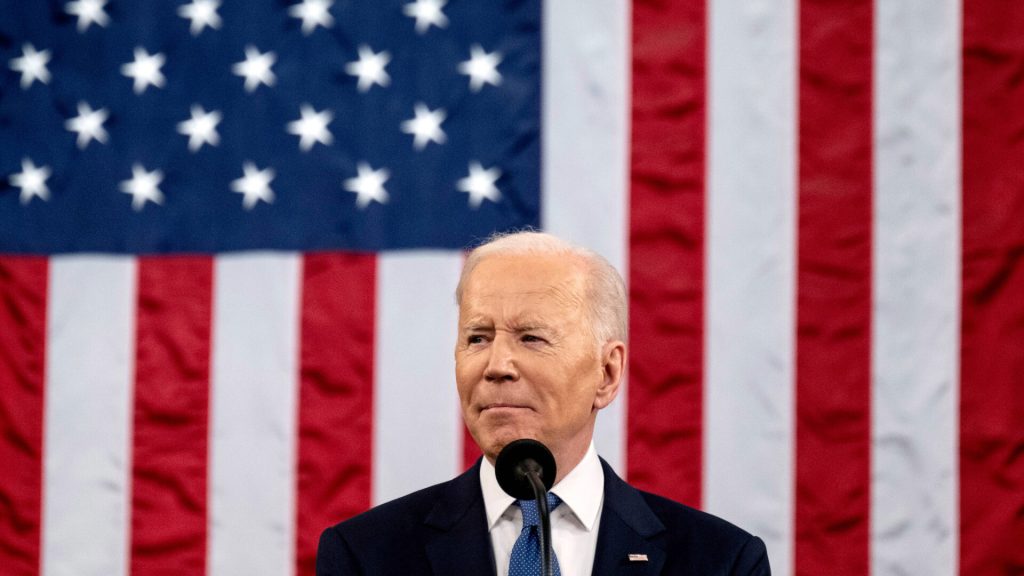
One reason is the cost of basic necessities. Inflation may have slowed, but that doesn’t change the fact that groceries are 25 percent more expensive than they were four years ago. There might be plenty of new jobs, but many are low-paying gigs that don’t provide an economic solution for struggling families. People are working two or three jobs.
The Stock Market Is Not The Economy
When we talk about the economy, there’s a lot of focus on the stock market. There have been times in history, most notably during the Great Depression, when stock market crashes have led to economic downturns. But how much does the stock market affect the average American and can it really tank the economy? The answer is… maybe?
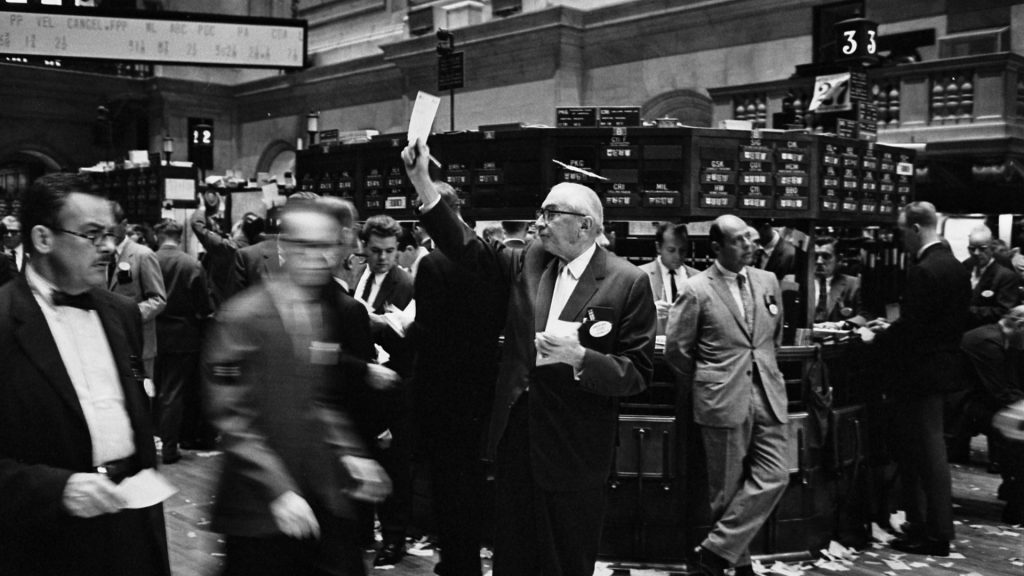
The stock market is a barometer of economic health but it’s not the only one. The most recent estimates say that only about 60 percent of Americans own stock. While a drop in the market may be a concern, it’s also true that the overall trend of the market is up. People who don’t panic can probably ride out most market fluctuations.
Republicans Vs Democrats On The Economy
It might surprise you to learn that by most economic markers, one party has outperformed the other. And, it’s not the one you think. Republicans have done a good job of touting their economic successes, but the best economic times in recent history have happened under Democratic Presidents Bill Clinton and Barack Obama.
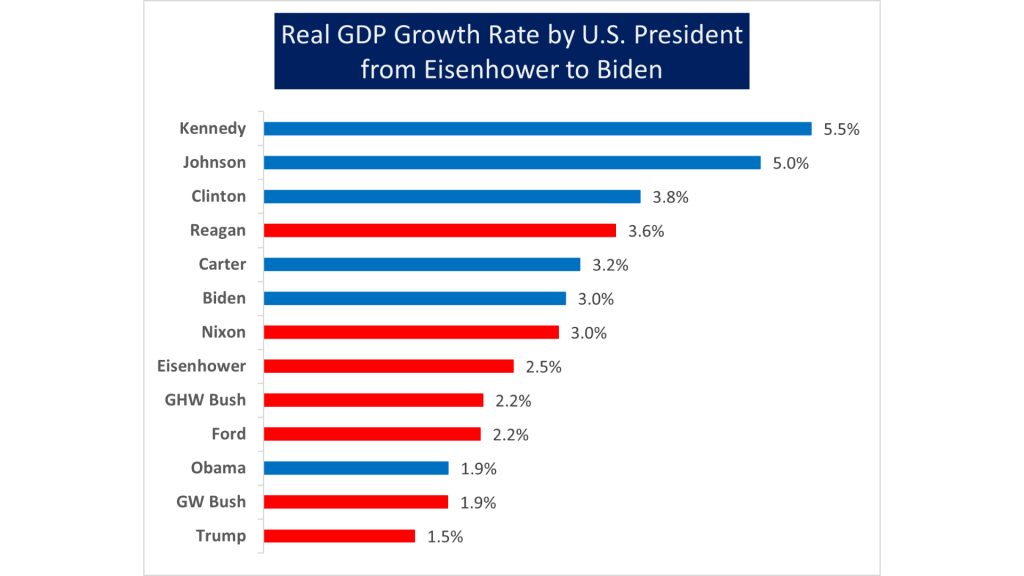
Bill Clinton’s two terms saw average annual growth of 4% and 22 million new jobs. His economic policies brought the federal budget into a surplus from 1998 to 2001, the first surplus since 1969. The national debt also fell during his time in office. The debt relative to GDP was 47.8% in 1993 and 31.4% by 2001.
Change Over Stability
Beyond market conditions, there’s something else that may drive people away from Biden: the desire for change. You may remember that a huge wave of change was part of what carried Barack Obama into office in 2008. That same desire for something different may make Biden’s reelection bid an uphill battle and favor Trump in November.
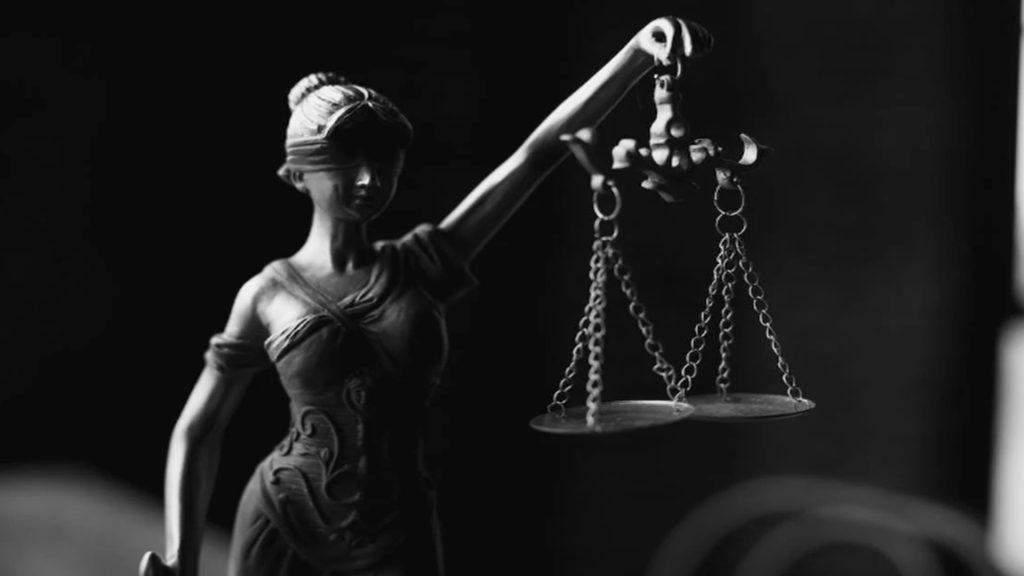
It may surprise you, but there’s evidence that American voters are just as likely to vote for a change candidate when things are going well economically as they are when times are tough. We can’t say for sure why that is, but we wonder if it’s just part of the American paradigm to want something new and different.
The Goldilocks Economy
There are some economic factors that hang in the balance. In the past few years, the Federal Reserve has been in a balancing act. They’ve raised interest rates in an effort to control inflation. The risk is triggering a recession in response to higher interest rates. Many have doubted the Fed’s ability to create a soft landing for the economy.
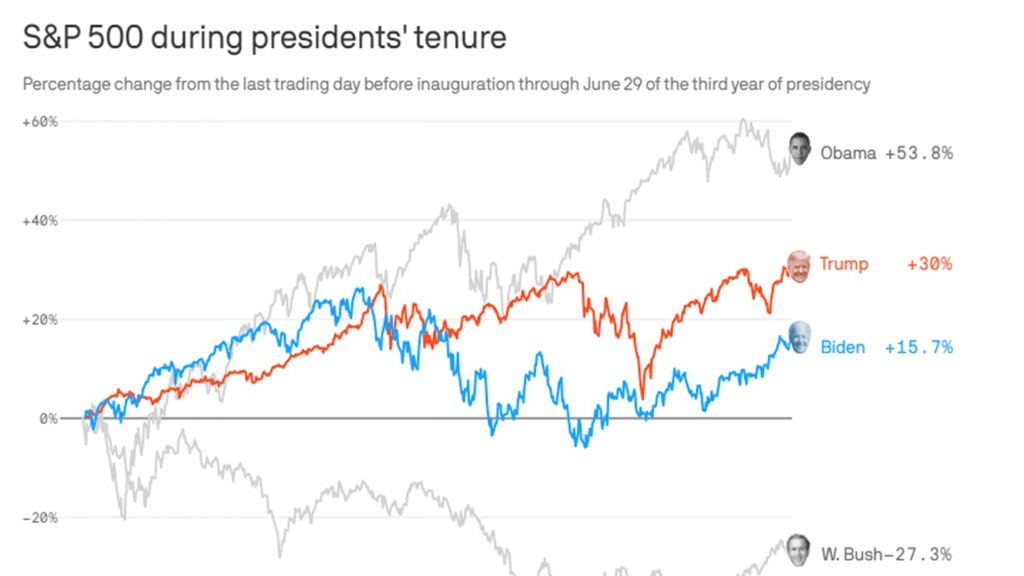
There’s some data that suggests that the Fed might have done exactly that. Some have referred to this as a Goldilocks economy, where things aren’t too hot or too cold. They’re exactly right. It may be that Americans wake up and choose to stay the course in the hopes that the economy improves. Or they may leap into the unknown.

